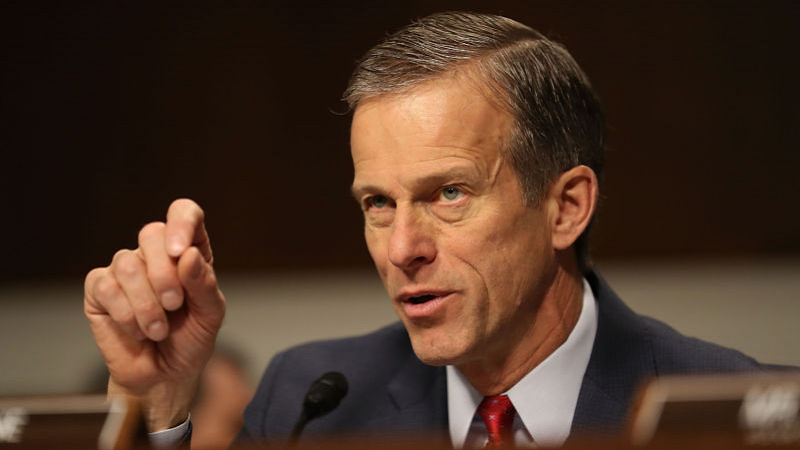
With the increasing buzz of AI technology making its way into government and private industry operations, a bipartisan pair of senators have sent a letter to the White House Office of Science and Technology Policy (OSTP) seeking to understand actions the government is currently taking to develop AI standards that “promote trust and transparency for Americans.”
Sens. John Hickenlooper, D-Colo. and John Thune, R-S.C., raised concerns about the adverse effects that AI technology can have, while at the same time making it clear that the technology can also be used for good purposes like streamlining “web searches through the use of AI chatbots [and] … writing code more efficiently.”
“Given the rapid pace of generative AI development, consumers should be provided with accessible tools to authenticate online content (audio, video, text, image) and feel empowered to trust the AI systems they interact with,” the senators wrote. “We need to invest in research and build consensus around authentication techniques between federal agencies, academia, and industry.”
Currently, no comprehensive Federal standards help regulate AI-generated content or make it apparent that AI-generated content is being used.
Additionally, the letter emphasizes the need for OSTP to “continue overseeing research into techniques that could help authenticate online content.” The senators argue that developing open standards will be critical to protecting consumers.
The letter outlines five questions for OSTP:
- What current or planned Federal research or pilot initiatives will focus on advancing content provenance and certifying the authenticity of AI-generated works;
- What techniques are being explored to prevent watermarks or content authenticity tools from being removed, manipulated, or counterfeited;
- How will watermarking techniques differ for various types of AI-generated content;
- Will watermarking or content provenance systems need to be designed, adapted, or applied in a sector-specific manner; and
- How is OSTP coordinating with other Federal agencies to implement more consumer education campaigns around content authenticity and digital literacy?
The letter comes a week after Sen. Hickenlooper sent another letter to Acting National Cyber Director Kemba Walden urging the White House to provide an update on efforts to reduce potential AI-generated threats to domestic cyberinfrastructure.
